<Back to Index>
- Chief - of - Staff of the Ottoman Army Hussein Nazim Pasha, 1848
- Field Marshal of the Ottoman Army Zeki Pasha, 1862
PAGE SPONSOR
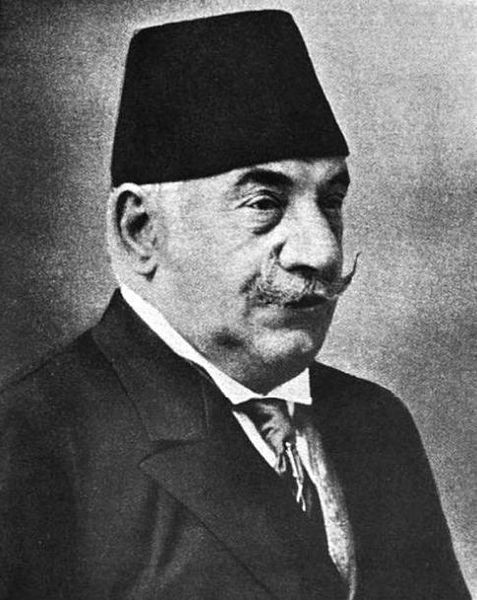
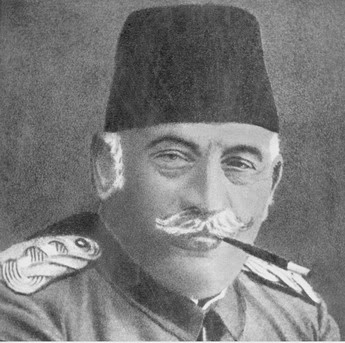
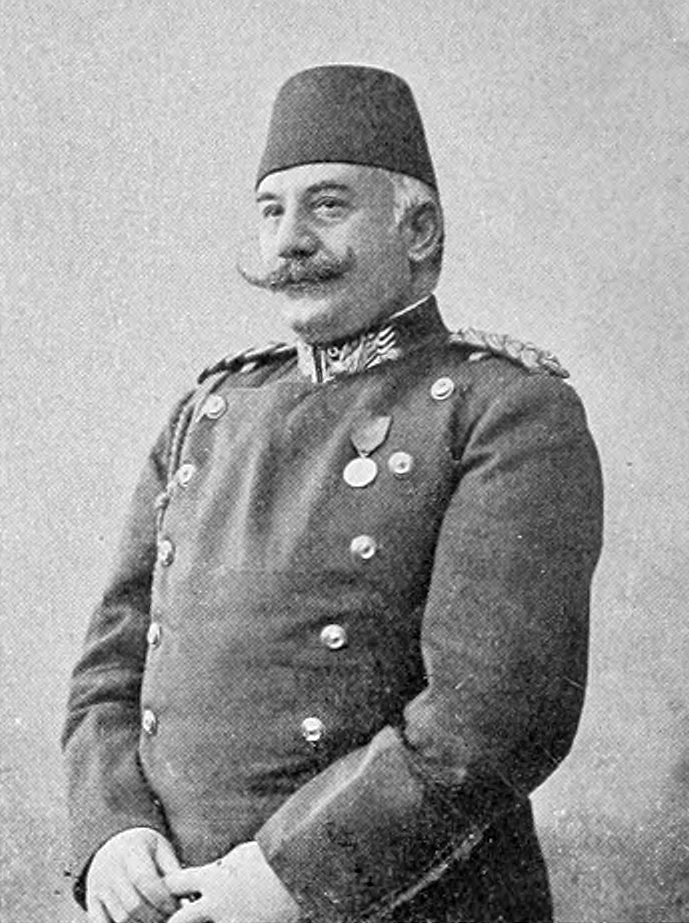
Hussein Nazim Pasha (1848 - 1913), was the Chief of Staff of the military of the Ottoman Empire during the First Balkan War.
He was a staunch supporter of the French Offensive Doctrine, developed primarily by Ferdinand Foch, his instructor at the Saint-Cyr Military Academy who later was supreme commander of Allied forces on the Western Front (World War I). Following his appointment as a Chief of Staff, he made immediate changes to Ottoman military doctrine which had been created by Colmar Freiherr von der Goltz, the German officer who had been in charge of the reorganization and training of the Ottoman army. Goltz's doctrine dictated that, in case of war with Balkan states, Ottoman forces would remain on the defensive, both on the western (Vardar) and eastern (Thracian) approaches.
Nazim Pasha abandoned der Goltz's defensive (and probably realistic) doctrine and, though the Ottoman army had severe problems in mobilizing its troops (fewer than half of the expected 600,000 troops), developed a bold offensive plan, including offensive operations on both fronts. Because the Serbian army was, after its defeat in the Serbo - Bulgarian War, considered a weaker opponent even by western observers, Nazim Pasha planned to attack it first, and render it operationally incapable. He would then attack Bulgaria (which was considered the strongest link in the Balkan alliance) from both the Macedonian and Thracian directions. His underestimation of Serbian strength led to the complete failure of his operational plan and the catastrophe which followed.
He was assassinated by the Young Turks in 1913.
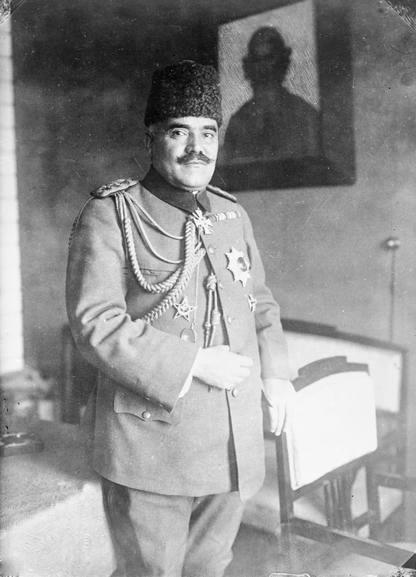
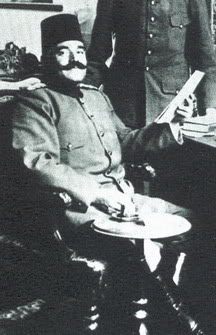
Zeki Pasha or Zekki Pasha (Turkish: Halepli Zeki Paşa) or Zeki Baraz Kolaç (Kılıçoğlu) or Zeki Kolaç (1862 - 1943) or Mehmet Zeki Baraz was a Balkan Wars and World War I Müşir (Field Marshal) of the Ottoman forces in the Balkans.
He graduated from the Ottoman Military Academy in 1883 and the Staff College in 1887. In 1894, as Commandant of the IV Corps, he was decorated for his participation during the Sassoun massacre. During the massacres, he reportedly stated, "not finding any rebellion we cleared the country so none should occur in the future.".
In 1912 - 1913, he was commander of the Vardar Army during the First Balkan War. Following the orders of Nazim Pasha, Chief of Staff of the Ottoman Army, Zeki Pasha initiated the Battle of Kumanovo.
His failure to deploy key artillery hindered the forces under his command and led to their defeat at Kumanovo. During the frantic Ottoman retreat from Kumanovo, a disgruntled Ottoman soldier attempted to assassinate him, contributing to the panic. The Vardar Army, consisting of the VII Corps commanded by Fethi Pasha, the VI Corps commanded by Djavid Pasha and the V Corps commanded by Kara Said Pasha, all under Zeki Pasha's command, retreated to Monastir (present day, Bitola) after the defeat at Kumanovo.
Zeki Pasha established a strong defensive position on the Oblakovo heights northwest of Monastir prior to the battle. However, during the Battle of Monastir, Serbian artillery and infantry managed to defeat the Ottomans. Fethi Pasha was among the casualties.
On 21 November 1914, he was assigned the Ottoman liaison officer to Kaiser Wilhelm II and was sent to German Empire. After armistice, he returned to Constantinople and served as the Ottoman Chief of General Staff between 23 October 1920 and 1 November 1922. He retired from the army in 1923.